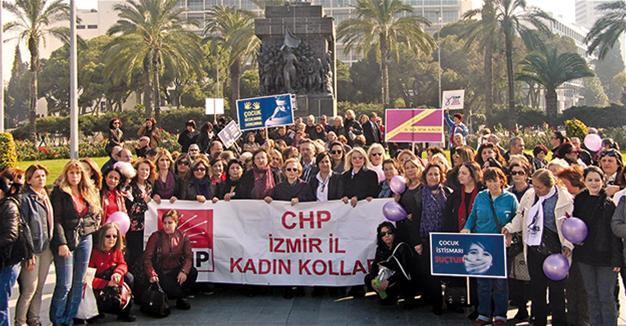Turkish gov’t, opposition lock horns over controversial child abuse bill
ANKARA

DHA photo
The government and opposition parties have locked horns over a controversial child abuse code, which is scheduled to be debated once again in parliament on Nov. 22, with the government asking critics to formulate a new proposal or it will continue with the current draft.“If the opposition parties have a suggestion for an amendment, we are waiting for it,” Justice and Development Party (AKP) deputy parliament group chair Mustafa Elitaş said on Nov. 21, adding that the AKP is not considering withdrawing the proposal.
However, opposition parties have refused to make a new proposal on the controversial bill, which provoked fury in Turkey as it would have allowed pardons for some men who assaulted underage girls if they marry their victims.
Elitaş called the main opposition Republican People’s Party (CHP) Deputy Chair Levent Gök to ask if the CHP had a proposition on the motion, to which Gök said his party would not put forward any proposal and would not be part of a “mistake.”
Elitaş also called Erkan Akçay from the Nationalist Movement Party (MHP) to ask for a proposal. But Akçay also reportedly replied that his party would not make any proposition until the AKP withdraws the bill. “First withdraw the bill, then we can discuss,” the MHP deputy chair told Elitaş.
The bill, which is a part of a 49-article draft amending the code of criminal procedure, was issued in parliament at a night session on Nov. 17 and received a majority of votes from lawmakers present at the session. As the entire bill has not been voted yet, the articles included in it are not yet considered to have been adopted.
The assembly was scheduled to vote on the entire bill again on Nov. 22 and the government had been trying to find a solution with opposition parties after the Hürriyet Daily News went to press late on Nov. 21.
Early on Nov. 21, Prime Minister Binali Yıldırım had come together with female AKP lawmakers in a meeting attended by Family and Social Policies Minister Fatma Betül Sayan Kaya and Justice Minister Bekir Bozdağ, where they discussed the controversial bill.
Yıldırım reportedly expressed his wish to find a consensus with the opposition at the meeting.
“The subject will be on parliament’s agenda. If the CHP and the MHP have any suggestion or proposition, and if they issue them, we are ready to take it into consideration,” Deputy Prime Minister Numan Kurtulmuş said after a Nov. 21 cabinet meeting.
Kurtulmuş said the prime minister and the cabinet had evaluated the criticism and suggestions they received from NGOs and other groups and will take them into consideration.
CHP warns of appeal to Constitutional Court
Meanwhile, the CHP’s Gök described the motion as having the “characteristics of an amnesty,” which meant it may be constitutionally rejected.
“The motion they brought forward has the characteristics of an amnesty. All amnesties must have a three-fifths vote in parliament. As the motion was not voted with this kind of majority, it is considered to have been rejected. Thus, what the AKP could do procedurally is withdraw the entire 49-article bill. If it does not, we will appeal to the Constitutional Court, which will annul all 49 articles, along with the article,” Gök told the Hürriyet Daily News on Nov. 21.
UN expresses concern on the bill
The United Nations also issued a statement expressing concern about the bill on Nov. 21.
“If adopted in its current form, the draft bill would weaken Turkey’s ability to combat sexual abuse and child marriage. It would create a perception of impunity in favor of perpetrators of such child rights violations. In addition it would increase the risk for further victimization of the child if she marries the perpetrator of the sexual abuse,” the U.N. statement read.
Recalling that Turkey is a state party both to the U.N. Convention on the Rights of the Child and the Convention on the Elimination of All Forms of Discrimination against Women, the statement added that the legal framework should strengthen the child’s rights and should protect children against all forms of sexual abuse and exploitation, including child marriage.
The AKP government argues that the motion aims to deal with issues caused by the all-too-common custom of child marriage in Turkey, though the opposition argues that it will legitimize child rape and enforced underage marriages.
















